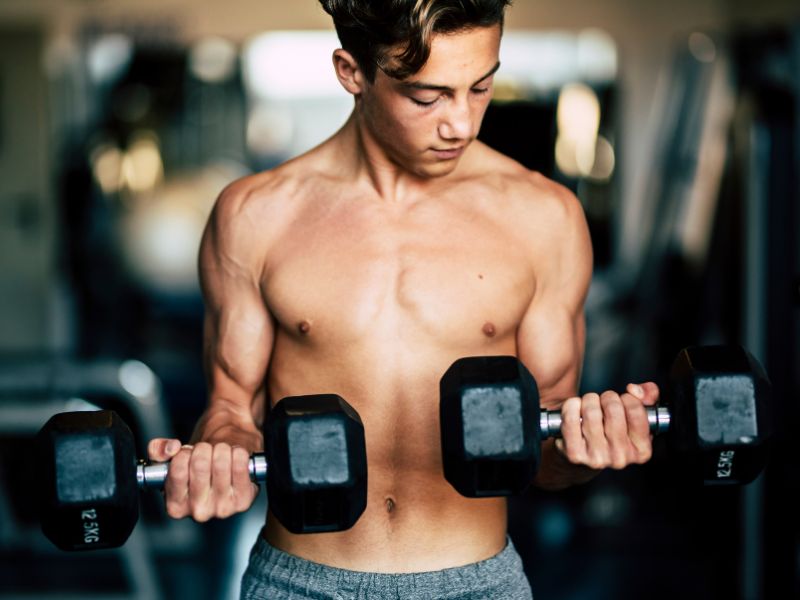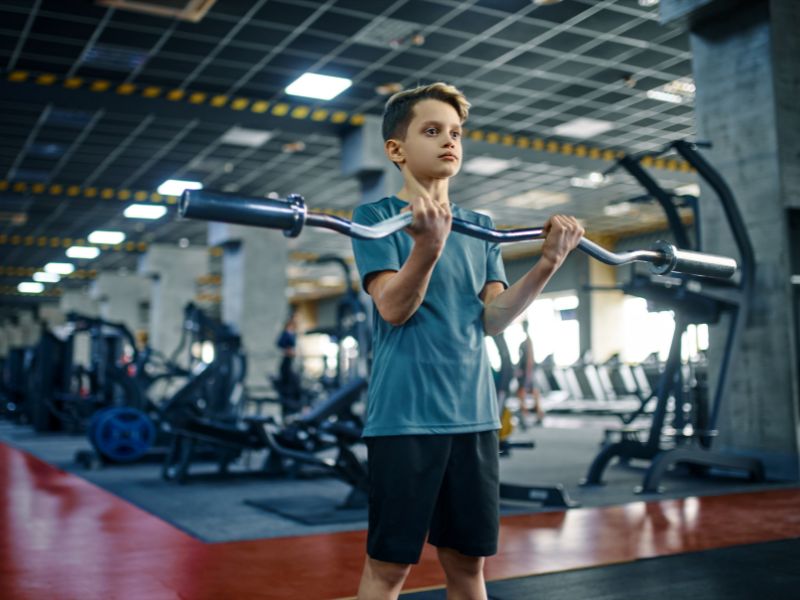As fitness gains popularity among teenagers, parents may find themselves questioning whether their sons’ gym habits are a healthy hobby or a sign of muscle dysmorphia. It’s crucial to navigate this delicate balance, as both physical activity and body image concerns are significant aspects of adolescent development. Here, we’ll explore the fine line between a healthy fitness routine and potential body image issues, offering expert guidance for concerned parents.

Canva. com
Healthy Habits Vs. Muscle Dysmorphia
A healthy hobby involves regular exercise, balanced nutrition, and an emphasis on overall well-being. Teenagers engaged in a positive fitness routine show increased self-esteem, improved mental health, and a sense of discipline. They understand that fitness is a long-term commitment and don’t solely focus on outward appearance.
On the other hand, muscle dysmorphia, also known as “bigorexia,” is a condition where individuals, predominantly males, obsessively pursue increased muscle mass, often to the detriment of their mental and physical health. Signs of muscle dysmorphia may include excessive time spent in the gym, an unhealthy fixation on body image, and distorted self-perception.

Canva. com
Expert Guidance For Parents
- Open Communication: Establish a non-judgmental and open line of communication with your teen. Please encourage them to share their fitness goals and concerns. Ask about their motivations and listen attentively.
- Educate on Balanced Nutrition: Emphasize the importance of a balanced diet. Help your teen understand that nutrition is a crucial component of any fitness routine and that it’s not solely about appearance.
- Encourage Rest and Recovery: Teach your teen about the significance of rest and recovery in building a healthy physique. Overtraining can lead to physical and mental exhaustion.
- Promote a Positive Body Image: Encourage your teen to appreciate their body for its strength and functionality rather than focusing solely on aesthetics. Reinforce that bodies come in all shapes and sizes.
- Be Mindful of Warning Signs: Watch for signs of obsession, extreme dietary restrictions, or withdrawal from social activities. If you suspect muscle dysmorphia, seek professional advice.
